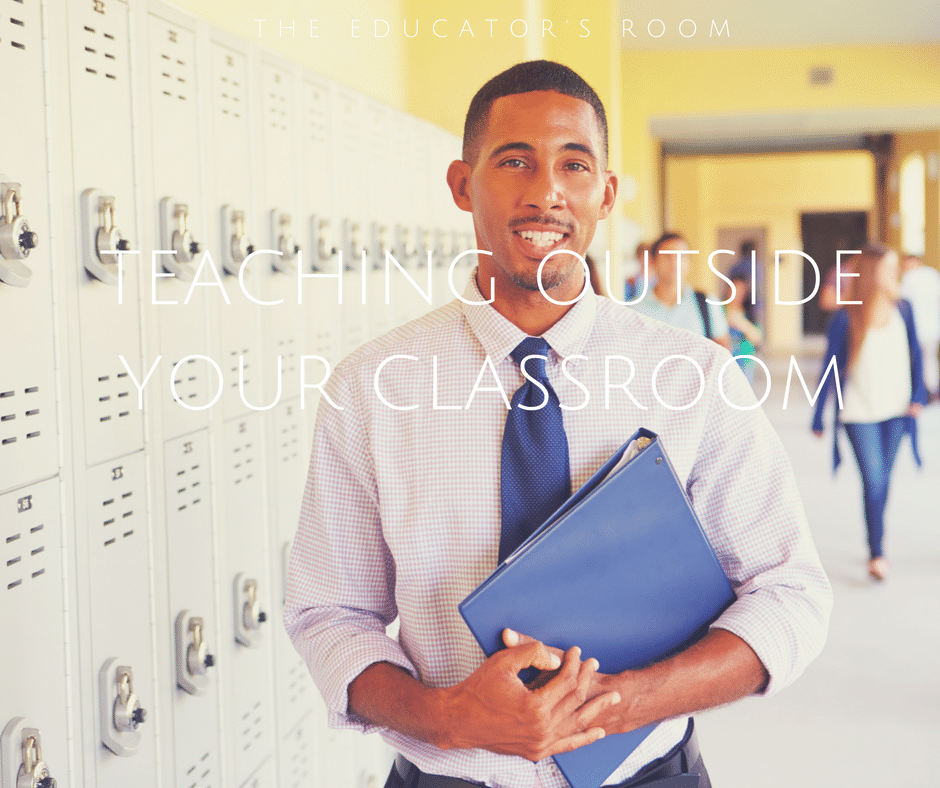In my last article “Teaching Class (with Class),” I explored the varied definitions of class: one a group of students we teach, another a way to uphold one’s self with students (and the public, in general).
This week, we’re going to explore methods on how to move the public pendulum outside of school with these 10 points of emphasis
1. Walk down the hallway and talk with your colleagues
I’m continually amazed as to how social our job is and yet how isolated we are. After working with the same 30 elementary or 150 secondary students (or more in some cases), the last thing we want to do is be more social. Break yourself from that – we’re more powerful together than we are separated.
[fusion_builder_container hundred_percent=”yes” overflow=”visible”][fusion_builder_row][fusion_builder_column type=”1_1″ background_position=”left top” background_color=”” border_size=”” border_color=”” border_style=”solid” spacing=”yes” background_image=”” background_repeat=”no-repeat” padding=”” margin_top=”0px” margin_bottom=”0px” class=”” id=”” animation_type=”” animation_speed=”0.3″ animation_direction=”left” hide_on_mobile=”no” center_content=”no” min_height=”none”][bctt tweet=”We’re more powerful together than we are separated.” username=”EducatorsRoom”]
2. Speak up!
Last year, there was an issue that many teachers had with a change at a particular school. They trashed the policy idea every chance they could. One of the teachers in that building stood up at a staff meeting and said the change was almost unanimously opposed. When the principal pressed on for those who were opponents, the teachers sat on their hands, and they made that teacher who spoke up either a hero or a pariah. It doesn’t have to be that way.
3. Begin a dialogue with your elected officials
When I first began teaching, my curriculum was American government. Since I’d worked in the State Senate and helped run a few campaigns, it was pretty easy for me to make connections with elected officials, contact them, and invite them to our schools. However, I was unprepared to notice how many teachers didn’t even know whom their elected officials and/or school board members were, and almost as many who abstained from voting. Presidential races be damned, the most important aspect of education is that it comes from publicly elected officials. Better to be a responsible citizen in the process than roadkill.
4. Or run for office yourself
A retired teacher I met is running for office near my hometown. He’s a great guy and really has a vision for the future of our Commonwealth and his home area. He’s completely invested in his community (as you can see by his website), and he has nothing to lose but making good policy decisions for the next generation. That’s the type of elected official I want in office; most teachers do, too.
5. Be involved in your union
The expectation of what the union should do for its educators is immense, and the costs of membership certainly reflect that. However, keep in mind that your union is like a gym membership – and it’s all about what you do with it. When I was upset over some decisions of my union about 5 years ago, I realized I had 2 decisions: cut the cord or reign it in and start to do things differently. I’m glad I made the latter decision, as I feel I’ve contributed to the success and advocacy of not just our teachers, but our students and our support staff as well. And if you hate your union, just ask your fellow educators in non-union states what it’s like.
6. Do good things with and for the public
Since my first year teaching, I’ve had veterans in my classroom every Veterans Day. This year, I’m going to try to make it a school-wide event. Why? A public school is a place where everyone matters and everybody deserves a chance. It’s where we need to laud our heroes. It’s where we need to provide the microphone for Freedom of Speech. It’s where we need to provide a home to community organizations – whether we agree with them or not. The buildings belong to the community, and we need to showcase that.
7. Take a stand on issues
When people are making decisions that are unsafe for and debilitating to our public schools and our democratic-republic, stand tall – and speak louder as public reception turns its ear your way.
8. Write comments in your local newspaper
Don’t get wrapped up in online trolling and slinging shots with anonymity user tags. “Teacherh8r” really doesn’t care who you are or what you stand for, but he’s also not confident enough to put himself and his lack of reputation out there. If there’s something you support enough, place your name behind it, and put it in your paper. Just make sure you’re not talking smack on your employer – there’s a fine line between taking a stand and losing your job.
9. Be an ideal parent
Kicking butt outside of school is nothing unless your an ideal parent, aunt, Sunday school teacher, or grandfather. Whatever role you have with children, enshrine it – and do more good in their lives than your classroom.
10. Be an ideal student
Learning doesn’t end at Master’s + 30. Keep on reading. Talking. Thinking. When you think you have your mind “made up,” turn to the other side of the argument and play devil’s advocate. Your students – and your community – will be all the better for it.
 [/fusion_builder_column][/fusion_builder_row][/fusion_builder_container]
[/fusion_builder_column][/fusion_builder_row][/fusion_builder_container]






